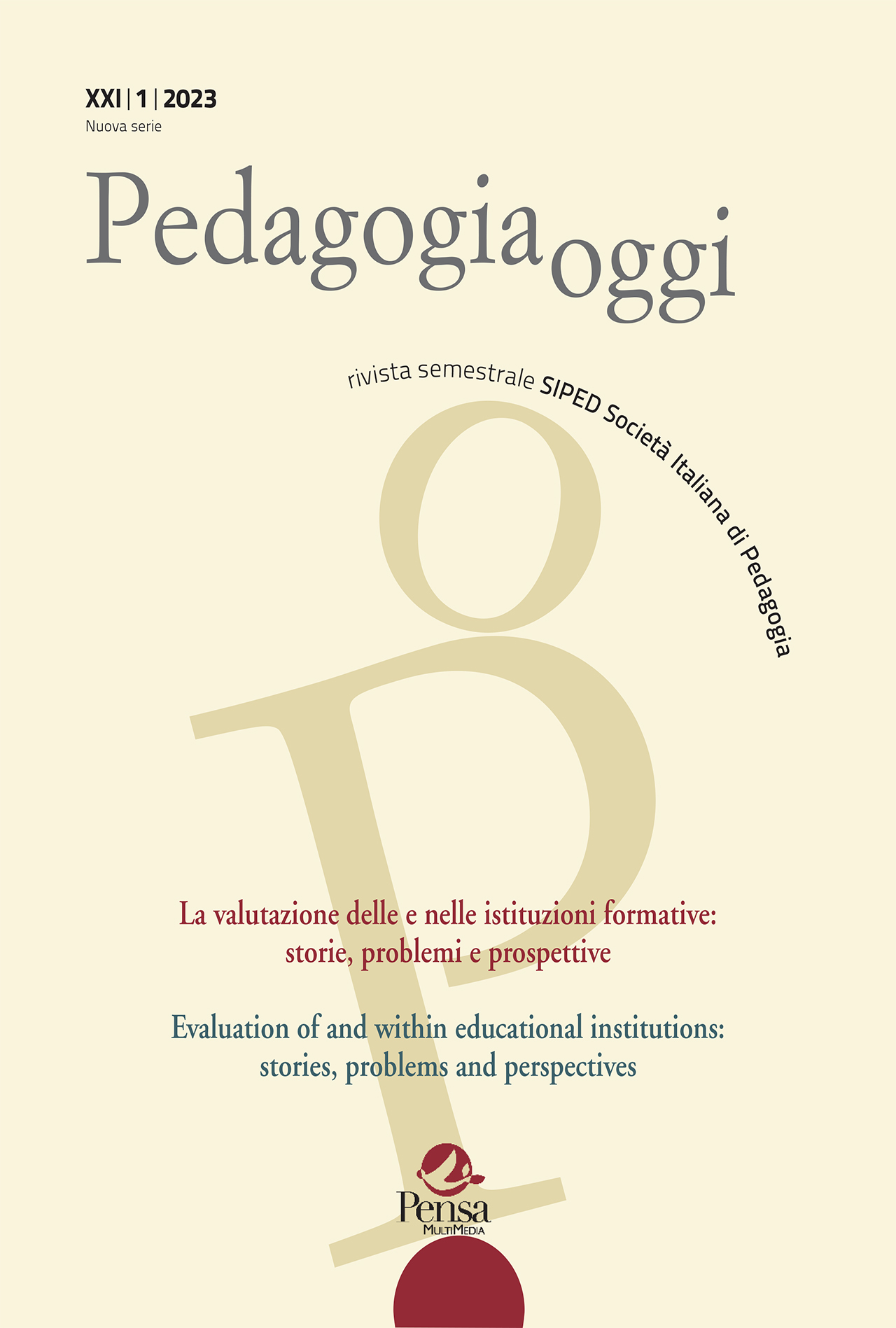Relational learning environments.
Theoretical perspectives and cooperative practices of ecodidactic design
DOI:
https://doi.org/10.7346/PO-012023-34Keywords:
ecodidactic, ecodidactics, learning environments, ecology, educational environments, implicit curriculumAbstract
This essay examines the dual track on which the study of the environment is placed in pedagogical studies in terms of form and content, i.e. as both context and an object to be protected; the aim is to put forward a proposal for overcoming this dualism through adopting an ecodidactic perspective. This investigation is set against the backdrop of the stratified and complex articulation that the category of environment has assumed over time in pedagogical research, as a result of the intertwining of political, civil and social instances. In this direction, the contribution outlines traits and peculiarities of educational design models of relational learning environments, inspired by the principles of pluralism and negotiation that have an ecological and systemic imprint, in which the concept of environment is understood as both natural and cultural. The essay also defines cooperative educational design paths, in a constructivist sense, in order to delegitimize the utilitarian and technocratic logic of innovation seen as necessary and to favor the activation of processes of knowledge and negotiation of implicit curricula, collateral learning and authentically educational experiences.




